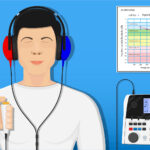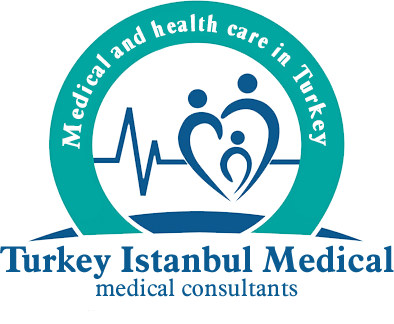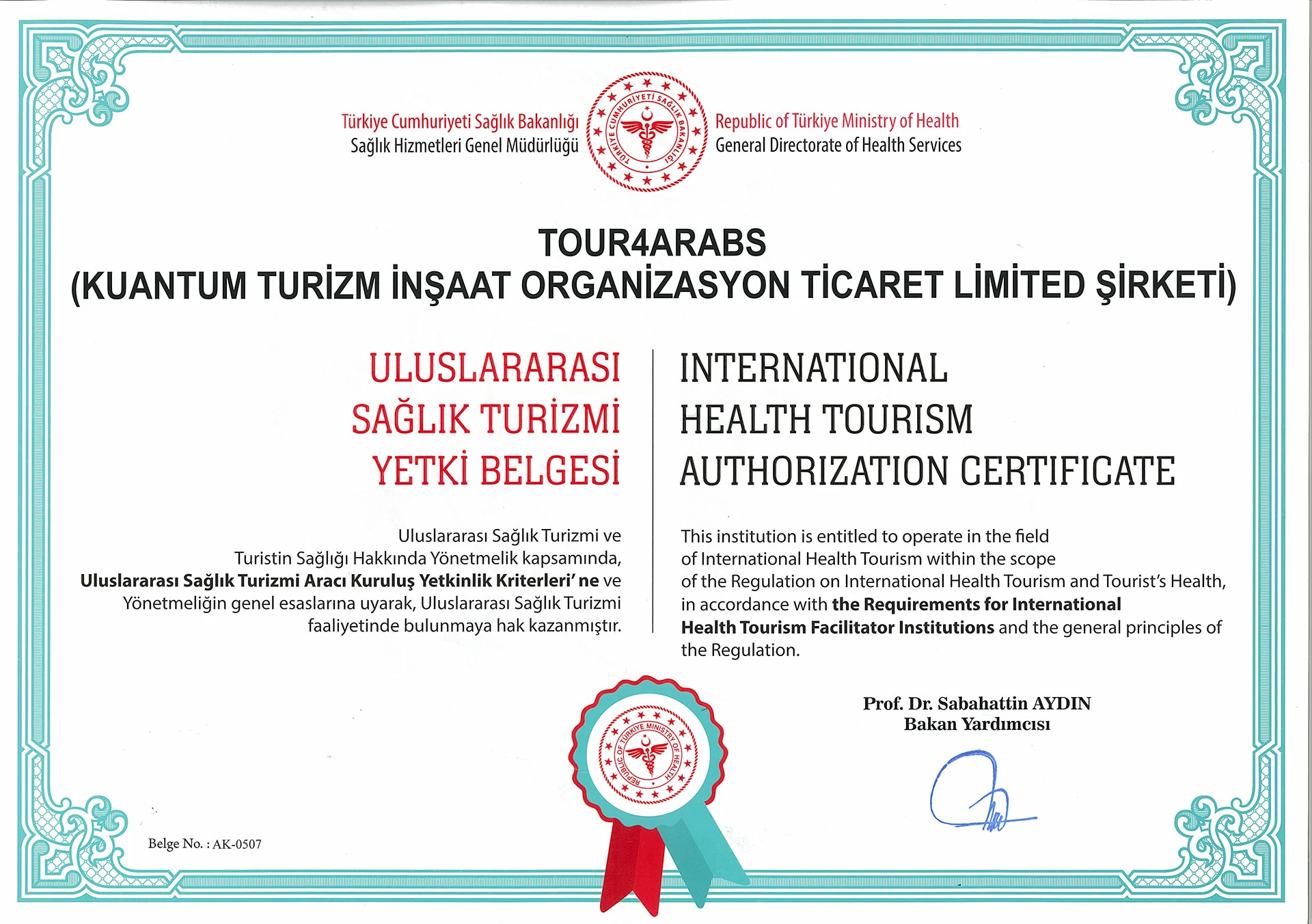What is Intermittent Fasting?
Intermittent Fasting is known as an intermittent diet. Intermittent Fasting is not a diet program, but a healthy eating habit that can be applied throughout life. It aims to prevent unnecessary carbohydrate intake by accustoming the body to being hungry and to produce its own energy without being dependent on external sources.
The Intermittent Fasting diet is generally based on the principle of “when to eat”. The purpose of this principle is to eat at certain intervals during the day and stop eating in the evening in order not to tire the slowing metabolism. Intermittent Fasting, in its most general definition, aims for the metabolism to work in the most efficient way.
How is Intermittent Fasting Applied?
It is possible to talk about several methods for intermittent fasting. All of these methods are the forms of eating and fasting organized in different periodic forms.
The most common methods of IF can be preferred according to the person:
-
16/8 Method:
A 14-16 hour fast is held during the day and the eating interval is limited to 8-10 hours. Two, three or more meals can fit into the eating interval.
This method can be simple to apply when you do not eat anything from dinner to breakfast. For example, the last meal ends at 20:00 and you do not eat until noon the next day. It may be practical for those who skip breakfast, but it may not be easy to get used to it for those who are hungry in the morning or like to eat breakfast.
You can drink water, coffee and other zero-calorie drinks during the fast, so it is possible to suppress the feeling of hunger.
Choosing healthy foods is very important during the eating interval. Because the desired efficiency of this method will not be achieved as a result of high-calorie consumption or preference for junk food and fast food.
-
5:2 Diet:
The 5:2 diet involves limiting calorie intake to 500-600 kcal for 2 days of the week and eating normally for 5 days of the week. This diet is also called the “Fast Diet”.
It is recommended that women eat 500 calories and men eat 600 calories on fasting days. During these two days, 2 meals of 250-300 calories can be consumed.
There are no studies testing the 5:2 diet, but there are studies on the benefits of intermittent fasting.
-
Eat Stop Eat:
The Eat Stop Eat method is to fast for 24 hours once or twice a week. When fasting, you eat dinner one day and fast until dinner the next day.
Water, coffee and other zero-calorie drinks are allowed during fasting. There are no solid foods.
When you do it for weight loss, it is very important to eat normal amounts during meal periods.
The disadvantage is that a complete 24-hour fast is quite challenging. If you want to try it, you can start with 14-16 hours and then switch to this method.
- Alternate Day Fasting:
With alternate day fasting, or alternate day fasting, you fast every other day. There are a few different versions. Some people consume about 500 calories on fasting days.
Sleeping very hungry many times due to the repetition of the fasting period every other day limits the sustainability of this method.
Alternate day fasting improves cardiovascular and metabolic status in people who are overweight, obese or have metabolic syndrome, similar to calorie restriction.
- Warrior Diet:
It involves eating small amounts of raw fruits and vegetables during the day and eating a large meal at night. In fact, a 20-hour fast is performed and a large meal is eaten at night during a four-hour eating window.
The food choices for this diet are quite similar to the paleo diet, as whole, unprocessed foods are mostly preferred.
It is based on the idea that eating at night ensures that the body receives nutrients that are compatible with its circadian rhythms. Some people may struggle to eat such a large meal so close to bedtime.
Who is Intermittent Fasting Not Suitable For?
The intermittent fasting diet may not be suitable for every individual.
This diet, which can vary depending on age, health status and lifestyle, may pose a risk for the following groups:
- Diabetic and high blood pressure patients
- Pregnant women or breastfeeding mothers
- Individuals with low body mass index
- Those who regularly exercise
- Those who have stomach problems
- Those with eating disorders
What Foods Should Be in the Intermittent Fasting Diet List?
In the intermittent fasting diet, balanced and nutritious meals should be preferred within the eating window.
Here are some basic foods and recommendations that should be included in the intermittent fasting diet list:
- Protein Sources:
Eating enough protein increases the feeling of fullness and helps preserve muscle mass. Chicken, turkey, fish, eggs, yogurt and plant-based protein sources (beans, lentils, tofu) are good options.
- Fibrous Vegetables:
Fibrous vegetables support the digestive system and help you stay full for a long time. Vegetables such as broccoli, spinach, cabbage, peppers, carrots and zucchini are rich in vitamins and minerals.
- Complex Carbohydrates:
Complex carbohydrates provide energy and help balance blood sugar. Whole grain bread, brown rice, oats, quinoa and sweet potatoes are examples of this group.
- Healthy Fats:
These healthy fats provide the fatty acids the body needs. And support general health.
For example: Healthy fats such as olive oil, avocado, hazelnut, walnut and chia seed should be preferred.
- Fruits:
For example: Fruits such as apple, banana, berries (strawberry, blueberry), orange and kiwi can meet the need for sweets.
- Liquids:
Water, tea and unsweetened coffee help provide hydration during intermittent fasting periods. Calorie-containing beverages should be avoided. Water consumption contributes to the elimination of toxins and the improvement of general health.
- Sample Menu:
- Breakfast: Oatmeal, fresh fruit, and a handful of walnuts.
- Lunch: Grilled chicken breast, brown rice, and a salad with lots of greens.
- Snack: Yogurt and a few slices of fresh fruit.
- Dinner: Baked salmon, sweet potatoes, and steamed vegetables.
In the intermittent fasting diet, it is important to consume a balanced and varied diet during the meal window. It is also recommended to pay attention to portion control and avoid processed foods. Consulting a nutritionist or health professional before implementing the diet can help you create a plan that suits your personal needs and health status.
Which Foods Should Not Be Included in the Intermittent Fasting Diet List?
- High Carbohydrates,
- Foods Containing Sugar and Fat,
- Packaged-Processed Foods,
- Sugary, Acidic and Alcoholic Beverages
Should not be included in the intermittent fasting diet list and should not be consumed.
What Symptoms Can You Show During Intermittent Fasting?
Those who lose weight and renew their bodies with the intermittent fasting diet may experience some physical and emotional symptoms at the beginning of this process, we have listed some of them for you.
-
Fatigue:
It starts in the afternoon of the first day and continues for 3-5 days. Since your organs consume a lot of energy during the cleansing process, you feel tired. Rest, do not tire yourself, drink at least 5-6 large glasses of detox soup every day.
-
Headache:
Headaches caused by caffeine addiction are a common symptom. It is usually experienced in the first 2 days and passes in a short time. Drinking lots of water, sweating (in a shower, sauna or steam room), head massage with peppermint oil, colema and positive thoughts can suppress your pain.
-
Nausea:
When our stomach starts to heal along with the large intestine, kidneys, skin, lungs and sinuses, nausea may occur. Toxins are acidic and our stomach can hold highly acidic substances, so it can remove them all at once. Drinking a glass of alkaline water will also cleanse the acidic residue in the esophagus. You will feel much better the day after your body has cleaned out a large amount of toxins.
-
Dizziness:
A normal symptom, especially in the morning. Get out of bed slowly, avoid sudden movements and heavy physical activities. Get some rest and drink Himalayan salt detox soup.
-
Bad Breath and Sweat Odor:
These symptoms are a sign that toxins are being eliminated from your body. · Gas and Bloating: Some days from the middle of the intermittent fasting diet process, you may feel gas and bloating in your abdomen and intestinal area.
What are The Benefits of Intermittent Fasting?
-
Reduces Insulin Sensitivity:
During periods when food consumption is restricted in intermittent fasting, since carbohydrate consumption is very limited, insulin secretion in the body remains at very low levels. Low insulin levels seriously stimulate fat burning in the body.
-
Detox Occurs Inside The Cell:
Cells that have been fasting for a long time begin to digest free radicals and cell residues that they would not normally consume in order to maintain their vitality. They do a kind of self-cleaning. In this way, the cell gets rid of elements that harm itself and its DNA and becomes healthier. To explain this situation with an example, when you are very hungry, you eat an apple that you have peeled. Later, when you are hungry and you cannot find anything to eat, you start eating the apple peels as well. We can say that the cell does the same.
-
Increase in Growth Hormone Levels:
It has been observed that there is an increase in growth hormones with this diet. While metabolism accelerates due to the increase in growth hormones, heart and bone health are protected and individuals age more slowly.
-
Improves Nervous System and Brain Health:
Ketone bodies increase in the body during fasting periods in the intermittent fasting diet. Ketones are an excellent fuel for the brain. Ketogenic diet has been recommended for years in the nutritional treatment of diseases such as Alzheimer’s and epilepsy.
-
Intestinal Health:
During periods when there is no food consumption, the intestinal tissue rests itself.
It repairs itself.
It treats itself against the disease called leaky gut syndrome.
Today, it is known that leaky gut syndrome may be the underlying cause of many diseases such as allergic reactions, joint and headaches, and skin rashes.
-
Appetite Control:
Since no carbohydrate-containing product is consumed during fasting periods, a situation that increases hunger and therefore triggers appetite metabolism is eliminated. In this case, it is a situation that prevents people from consuming too much energy.
-
Helps Lose Weight:
Since there will be no snacks during the day in the IF diet, individuals switch to a more controlled nutrition model, and with the decrease in insulin levels, it becomes easier for them to lose weight.
-
Reduces Inflammation:
Inflammation is perhaps the most dangerous and insidious condition in our body. It is considered a process that prevents our body from functioning normally and damages its own tissues. It is suggested that the intermittent fasting diet reduces inflammation in the body.
What are The Possible Harms of the Intermittent Fasting Diet?
Intermittent fasting is a diet method that requires you to be hungry for a certain period of time. This type of diet has some potential harms and may not be suitable for everyone. Some of the possible harms of intermittent fasting:
-
Nutritional Deficiencies:
Intermittent fasting means eating in a limited period of time, which requires eating a small number of meals. In this case, the variety and amount of food may be limited, so it may be difficult for your body to get all the nutrients it needs. Long-term intermittent fasting can be risky, especially for children, adolescents, pregnant women, breastfeeding mothers and people with certain health problems.
-
Fluctuations in Blood Sugar Levels:
Intermittent fasting can cause fluctuations in blood sugar levels. This can be risky, especially for people with conditions that require careful attention to blood sugar control, such as diabetes. Low blood sugar levels may occur during fasting, resulting in dizziness, weakness, and lack of concentration.
-
Digestive Problems:
Intermittent fasting can cause digestive problems in some people. Long periods between meals can cause increased stomach acid in some people and digestive disorders such as reflux.
-
Eating Disorders:
Intermittent fasting can contribute to eating disorders in some people. People who are particularly emotionally challenged may develop uncontrolled eating spells or eating disorders due to hunger.
-
Hormonal Imbalances:
Long-term intermittent fasting can cause hormonal imbalances in women. Especially when applied irregularly or too strictly, it can have negative effects on the menstrual cycle, reproductive health, and hormone levels.
Can You Exercise During Intermittent Fasting?
It may be difficult to exercise during long periods of hunger during an intermittent fasting diet. However, light exercises and non-tiring sports activities, especially between two meals, can contribute to the process, accelerate fat burning and keep the person fit.
These exercises can be; light paced walking, cardio exercises, weight training, cycling, yoga, and Pilates.
You can also apply to a health center as soon as possible to lose weight healthily and turn the intermittent fasting diet into a life principle, have the necessary tests and examinations done and start an intermittent fasting regime under the supervision of a doctor.
What Should Be Considered When Applying an Intermittent Fasting Diet?
-
Apply Under the Guidance of a Nutritionist:
It is important to consult a dietitian to create a personal nutrition program and apply the system.
-
Maintain Balance:
It is important to eat during intermittent fasting periods. Fill these periods with healthy, balanced and nutritious foods. Opt for a diet that includes protein, fiber, healthy fats, vegetables, and whole grains.
-
Pay Attention to Hydration:
Remember to drink water during fasting periods. Hydration is critical to your health.
-
Start Slow:
If you are new to intermittent fasting, it may be best to start slowly.
-
Regular Check-Ups:
It is important to regularly monitor your health and consult with a health professional while implementing an intermittent fasting diet. Everyone’s needs are different, so a personalized approach is important.
In conclusion, intermittent fasting can be an effective option for many people who want to achieve their health and weight control goals. However, it is important to consult a dietitian before implementing any diet. It is always best to take a personalized approach and respect your body’s needs.






